
Human Entities Podcast
By CADA
Organised by CADA, the programme takes place annually in Lisbon.
Listen to recordings from 2023 to 2022.
In partnership with the Lisbon Architecture Triennale
Funded by: The Dir.-Gen. for the Arts of the Portuguese Ministry of Culture
Supported by: Lisbon City Council, NOVA-LINCS
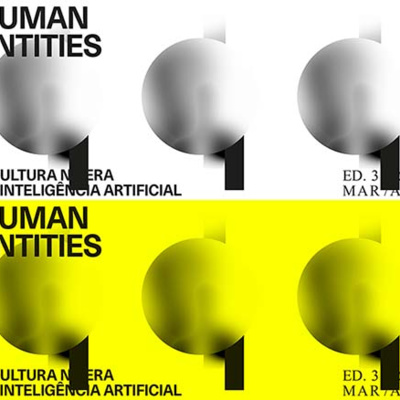
Human Entities PodcastNov 20, 2019

Human Entities 2023: Joanna Bryson
Human Entities 2023: culture in the age of artificial intelligence
Seventh edition, Wednesday 17 May 2023
Authorship, Agency, and Moral Obligation
Joanna Bryson
Professor of Ethics and Technology in the Centre for Digital Governance at Hertie School in Berlin
How much of our individual human experience can we absorb into machine models when we use machine learning and a huge amount of data? Will AI become sentient? Sovereign? Ambitious? How will living with AI change our daily experience? This talk reflects natural, social, and computing sciences, describing both human and artificial intelligence, then governance, justice, and creativity. What we do matters, and we are obliged to ourselves and our planet to create and maintain good governance of all artefacts of our species.
Joanna Bryson
Joanna J Bryson, Professor of Ethics and Technology at Hertie School, is an academic recognised for broad expertise on intelligence, its nature, and its consequences. She advises governments, transnational agencies, and NGOs globally, particularly in AI policy. She holds two degrees each in psychology and AI (BA Chicago, MSc & MPhil Edinburgh, PhD MIT). Her work has appeared in venues ranging from reddit to the journal Science. She continues to research both the systems engineering of AI and the cognitive science of intelligence, with present focuses on the impact of technology on human cooperation, and new models of governance for AI and ICT.
https://www.joannajbryson.org
https://joanna-bryson.blogspot.com
https://twitter.com/j2bryson
Organised by CADA in partnership with Faculty of Fine Arts, University of Lisbon

Human Entities 2023: Orit Halpern
Human Entities 2023: culture in the age of artificial intelligence
Seventh edition, Wednesday 3 May 2023
Smart Power
Orit Halpern
Full Professor and Chair of Digital Cultures and Societal Change at Technische Universität Dresden
Today, growing concerns with climate change, energy scarcity, security, and economic volatility have turned the focus of urban planners, investors, scientists, and governments towards computational technologies as sites of potential salvation from a world consistently defined by catastrophes and ‘crisis’. From large scale computer simulations of the weather, to smart cities and infrastructures, to geo-engineering projects, to cryptocurrencies and blockchains, we have arguably transformed the planet into a test-bed and experiment for computational technologies. The penetration of almost every part of life by digital technologies has transformed how we understand nature, culture, and time. But what futures are we imagining, or foreclosing through these planetary ‘experiments’? How have we come to see human survival as fundamentally dependent on computational networks? This talk maps the rise of this ‘smartness mandate’. Tracing genealogies from artificial intelligence, finance, architecture, and art I will develop an account of how ubiquitous computing has become one of the dominant governing logics of our present (and possibly our future) and to what effects.
Orit Halpern
Orit Halpern is Full Professor and Chair of Digital Cultures and Societal Change at Technische Universität Dresden. Her work bridges the histories of science, computing, and cybernetics with design. She completed her Ph.D. at Harvard. She has held numerous visiting scholar positions including at the Max Planck Institute for the History of Science in Berlin, IKKM Weimar, and at Duke University. She is currently working on two projects. The first is a history of intelligence and evolution; the second project examines extreme infrastructures and the history of experimentation at planetary scales in design, science, and engineering. She has also published widely in many venues including Critical Inquiry, Grey Room, Journal of Visual Culture, and E-Flux. Her first book Beautiful Data: A History of Vision and Reason (Duke UP 2015) investigates histories of big data, design, and governmentality. Her latest book with Robert Mitchell (MIT Press January 2023) The Smartness Mandate, is a theory and history of the concept of ‘smartness’, that interrogates the relationship between computation, population, economy, and governmentality.

Human Entities 2023: Manuel Arriaga + Pedro Magalhães
Human Entities 2023: culture in the age of artificial intelligence
Seventh edition, Wednesday 26 April 2023
Rebooting democracy
Manuel Arriaga + Pedro Magalhães
Manuel Arriaga is a university professor and one of the founders of the Fórum dos Cidadãos; Pedro Magalhães is a researcher at the Institute of Social Sciences, University of Lisbon
Democracy is a technology of collective decision-making that aggregates intentions and defines a course of action. However, according to the diagnosis of many, it’s a technology ‘in crisis’. An important part of the contemporary experience of ‘democratic frustration’ seems to result from the contrast between the stagnation of ways of doing politics and the rapid evolution of digital technology. As consumers, we have long learned to expect – and demand – innovation. Yet, as citizens, we regularly confront ourselves with the immutability of mechanisms of governance.
In representative democracy, who is effectively represented? How, and to what extent, are the interests and preferences of people – and different people – converted into policies? With regard to the issue of the environment and climate change, in every election cycle there seems to be a kind of myopia, or short-sightedness, which exclusively focuses on the articulation and resolution of (some) short-term problems.
To what extent can forms of ‘democratic innovation’, especially those that serve to create greater opportunities for political participation, serve to address long-term problems, in particular the climate crisis? What is the potential of other forms of political organisation as a complement, or even alternative, to representative democracy?
This discussion will be moderated by Catherine Moury, Associate Professor of Political Science and Director of the PhD programme, Political Studies Department, NOVA University of Lisbon.
Manuel Arriaga
Manuel Arriaga is a university professor, author of Rebooting Democracy: A Citizen’s Guide to Reinventing Politics one of the founders of the Fórum dos Cidadãos and, more recently, one of the driving forces behind the political party (still non-existent) FUTURO.
https://www.rebootdemocracy.org
https://www.forumdoscidadaos.pt
https://www.futurodemocratico.pt
Pedro Magalhães
Pedro Magalhães is a researcher at the Institute of Social Sciences of the University of Lisbon, where he develops research in the area of public opinion and political attitudes, in particular attitudes towards democracy.
https://www.pedro-magalhaes.org/
https://twitter.com/PCMagalhaes

Human Entities 2023: Mark Leckey
Human Entities 2023: culture in the age of artificial intelligence
Seventh edition, Wednesday 19 April 2023
Artist talk
Mark Leckey
Mark Leckey is one of the most influential artists working today. Since the late 1990s, his work has looked at the relationship between popular culture and technology as well as exploring the subjects of youth, class and nostalgia. He works with sculpture, film, sound and performance – and sometimes all four at once. In particular, he is known for Fiorucci Made Me Hardcore (1999) and Industrial Light and Magic (2008), for which he won the Turner Prize.
His work has been widely exhibited internationally, including solo exhibitions at Tate Britain, in 2019, Serpentine Gallery, in 2011, Kölnischer Kunstverein, Cologne, in 2008 and at Le Consortium, Dijon, in 2007. His performances have been presented in New York City at the Museum of Modern Art, Abrons Arts Center; at the Institute of Contemporary Arts, London, both in 2009; and at the Solomon R. Guggenheim Museum, New York City, in 2008. His works are held in the collections of the Tate and the Centre Pompidou.
https://markleckey.com
https://www.cabinet.uk.com/mark-leckey
https://www.tate.org.uk/art/artists/mark-leckey-6877/introducing-mark-leckey
https://www.youtube.com/@MrLeckey
https://www.instagram.com/mark.leckey
https://twitter.com/MarkLeckey
https://www.nts.live/shows/mark-leckey

Human Entities 2022: Wendy Hui Kyong Chun
Organized in partnership with the Faculty of Fine Arts, University of Lisbon, Communication Design and of Multimedia Arts departments
Discriminating Data, a conversation with Wendy Hui Kyong Chun
Wendy Hui Kyong Chun
Canada 150 Chair in New Media, Director, Digital Democracies Institute
In Discriminating Data [2021], Wendy Hui Kyong Chun reveals how polarization is a goal—not an error—within big data and machine learning. These methods, she argues, encode segregation, eugenics, and identity politics through their default assumptions and conditions. Correlation, which grounds big data’s predictive potential, stems from twentieth-century eugenic attempts to “breed” a better future. Recommender systems foster angry clusters of sameness through homophily. Users are “trained” to become authentically predictable via a politics and technology of recognition. Machine learning and data analytics thus seek to disrupt the future by making disruption impossible.
In this conversation, Chun will discuss the themes of her book with Andrea Pavoni, assistant research professor at DINAMIA’CET and then take questions from the audience.
Wendy Hui Kyong Chun
Wendy Hui Kyong Chun is the Canada 150 Research Chair in New Media at Simon Fraser University, and leads the Digital Democracies Institute. She studied Systems Design Engineering and English Literature, which she combines in her current work on digital media, and is the author of Control and Freedom: Power and Paranoia in the Age of Fiber Optics (2006), Programmed Visions: Software and Memory (2011), Updating to Remain the Same: Habitual New Media (2016) and, more recently, Discriminating Data (2021).
https://www.sfu.ca/communication/team/faculty/wendy-chun.html
https://mitpress.mit.edu/books/discriminating-data
https://twitter.com/whkchun
Human Entities is a public programme of talks organised by CADA.

Human Entities 2022: Paola Torres Núñez del Prado
Artist Talk
Paola Torres Núñez del Prado
Artist
Somewhat similar to what it is commonly said about migrants, autonomous machines are taken to be a potential threat to some human labour. In military environments, these systems and their efficiency can, in fact, be more lethal than those controlled by people. This idea allows us to roll back to the core definition of intelligence which, since the Industrial Revolution has been deeply linked with efficiency-as-productivity, and subsequent avoidance of errors. This definition which is the heir of a type of rationality, with origins in the Enlightenment, is placed at the top of a hierarchy above all other human thought systems. Problems linked to managing the natural environment, where other later ‘non-rational’ human cultures are encountered, have been solved through domination and even annihilation. We can now see that some AI systems continue this legacy.
In this context, AIELSON [a machine learning model Torres trained to generate spoken-word poetry] reflects upon the zeitgeist, incorporating a complex critique where the system is seen to be connected to humanity (as a reflection) since imperfections are not discarded but embraced. Consequently this contradicts the notion of intelligence as the epitome of flawless efficiency and perfection. Hence, Torres proposes that we should now discuss machine creativity, and how creativity informs human imagination. Her work asks the question: Can we envision another future of possible cooperation between humans and machines, where the natural world is no longer seen as a territory to conquer?
Bio
Paola Torres Núñez del Prado departs from the exploration of the limits of the senses to examine the concepts of interpretation, translation, and misrepresentation, reflecting on the mediated sensorial experiences that (re)construct our perceived reality and that in turn serve to establish a cultural hegemony within the history of technology and the arts. Recently, she received an Honorary Mention at the Prix Ars Electronica for AIELSON, a system developed during her residence on Google’s Artists + Machine Intelligence program 2019-20.
Her performances and her artworks, which are also part of the collections of Malmo Art Museum and the Public Art Agency of Sweden, have been presented in several countries of the Americas, Central Europe, and Scandinavia, where she is currently based.
https://autodios.github.io
http://www.singingtextiles.com
https://twitter.com/autodios

Human Entities 2022: Bram Büscher
#NatureTruthPower: Política ambiental na era da pós-verdade e das plataformas digitais
Bram Büscher
Professor and Chair of the Sociology of Development and Change group at Wageningen University
How should we share the truth about the environmental crisis? At a moment when even the most basic facts about ecology and the climate face contestation and contempt, environmental advocates are at an impasse. Many have turned to social media and digital technologies to shift the tide. But what if their strategy is not only flawed, but dangerous?
In this presentation, Bram Büscher traces how environmental action is transformed through the political economy of digital platforms and the algorithmic feeds that have been instrumental to the rise of post-truth politics. Building on a novel account of post-truth as an expression of power under platform capitalism, he shows how environmental actors mediate between structural forms of platform power and the contingency of environmental issues in particular places. Key in understanding this mediation is a reconfiguration of the relations between nature, truth and power in the 21st century. Its upshot is the need for an environmental politics that radically reignites the art of speaking truth to power.
Bio
Bram Büscher is Professor and Chair of the Sociology of Development and Change group at Wageningen University and is a visiting professor at the Department of Geography, Environmental Management and Energy Studies at the University of Johannesburg. His research and writing revolve around the political economy of environment and development with specific interests in biodiversity, conservation, new media, digitalization and violence. He developed the concept of Nature 2.0, which focuses on the political economy of new media and its implications for participation in nature conservation. He is the author of Transforming the Frontier: Peace Parks and the Politics of Neoliberal Conservation in Southern Africa (2013), co-author, with Robert Fletcher, of The Conservation Revolution: Radical Ideas for Saving Nature Beyond the Anthropocene (2020) and author of The Truth About Nature: Environmentalism in the Era of Post-Truth Politics and Platform Capitalism (2021). This talk was followed by a Q&A session.
https://brambuscher.com
https://www.ucpress.edu/book/9780520371453/the-truth-about-nature
https://twitter.com/brambuscher

Human Entities 2021: Jennifer Gabrys
Sensing Smart Forests
Jennifer Gabrys
Chair in Media, Culture and Environment in the Department of Sociology, University of Cambridge
Forests are increasingly sensorized environments. Whether in the form of camera traps to monitor organisms or the Internet of Things to detect wildfires, there are an array of sensor technologies that observe and constitute forests in relation to scientific inquiry, Indigenous land claims, environmental governance, and disaster prevention and mitigation.
This presentation will investigate the sensory arrangements that Smart Forests generate. It will ask how sensory infrastructures materialize as distributions of power and governance, while considering the sensory practices that transform and potentially re-constitute dominant regimes of perception toward other inhabitations and milieus.
Bio
Jennifer Gabrys is Chair in Media, Culture and Environment in the Department of Sociology at the University of Cambridge. She leads the Planetary Praxis research group and is Principal Investigator on the ERC-funded project, Smart Forests: Transforming Environments into Social-Political Technologies. She also leads the Citizen Sense and AirKit projects, which have both received funding from the ERC (European Research Council).
She writes on digital technologies, environments and social life, with recent publications including How to Do Things with Sensors (2019) and Program Earth: Environmental Sensing Technology and the Making of a Computational Planet (2016).
Links:
https://smartforests.net
https://planetarypraxis.org
https://www.jennifergabrys.net
Jennifer Gabrys was online with a live connection to the venue. Her talk was followed by a Q&A session.

Human Entities 2021: Alexandre Estrela
Artist talk
Alexandre Estrela, Artist
A conversation about the parallel communication (or the lack of it) between Art and Science in the context of the work of Alexandre Estrela. This includes the collaboration with Moita Lab from the Champalimaud Neuroscience Programme, the Company Orange and the Human Language Technology Laboratory INESC-ID/IST.
Bio
Alexandre Estrela’s work is an investigation into the essence of images that expands spatially and temporally through different media. In his videos and installations Estrela examines the subject’s psychological reactions to images in their interaction with matter. Each piece brings together synaesthetic experiences, visual and sound illusions, aural and chromatic sensations that function as perceptual traps, leading the subject towards conceptual levels. With this strategy Estrela constantly splits vision into further sensible dimensions towards the unseen and the unheard.
Recent solo exhibitions include All and Everything, Rufino Tamayo Museum, Mexico City, 2020, Métal Hurlant, Fondation Gulbenkian, Paris, 2019, Cápsulas de silencio, Reina Sofía Museum, Madrid, 2016, Roda Lume, M HKA, Antwerp, 2016, Meio Concreto, Serralves Museum, Porto, 2013, among others. His next show, Flat Bells, will be shown at MoMA, New York, in 2022.
Alexandre Estrela was in conversation with Jared Hawkey and Sofia Oliveira.

Human Entities 2021: Inês Cisneiros
The European Union’s regulatory framework for Artificial Intelligence
Inês Cisneiros
Lawyer
On her appointment as President of the European Commission, Ursula von der Leyen made regulation of artificial intelligence (AI) a top priority. In her view legislation is fundamental to safeguard the European Union’s citizens’ fundamental rights and encourage investment in safe innovation and technological development. As a result, in April 2021, the European Commission presented a proposal which when approved would prohibit harmful AI practices and impose restrictions on high-risk AI systems.
This ethical stance will position the EU against the lack of regulation in the US and state control in China. From Cambridge Analytica to the recent Project Pegasus, from facial recognition to social credit system, it is increasingly apparent that the abusive use of digital computation compromises human rights.
So, how would this regulation protect citizens in the context of a globalized society? Could the European strategy influence worldwide adoption of good AI practices? How does this proposal relate to the General Data Protection Regulation?
A conversation on what will be solved and what remains to be answered by this proposal includes the participation of Eduardo Santos (D3 – Associação dos Direitos Digitais, a Portuguese digital rights association) and João Leite (NOVA LINCS, Associate Professor, Computer Science Department, NOVA University Lisbon).
Bio
Inês Cisneiros is a practising lawyer at Miranda e Associados and an elected member of the deliberative body of the Portuguese green party LIVRE. She holds post-graduate qualifications in Intellectual Property, Information Society, Data Protection and Bioethics and is currently completing a Master’s degree in Political Philosophy, at the School of Social Sciences and Humanities of NOVA University Lisbon (FCSH-UNL).
She studied issues regarding artificial moral agency and the need for responsible design for the Master’s Practical Ethics seminar. Her Master’s dissertation will focus on issues regarding democratic engagement across generations, touching on the political impacts of technology.
Links:
http://linkedin.com/in/inês-cisneiros-0707862a
https://twitter.com/inescisneiros
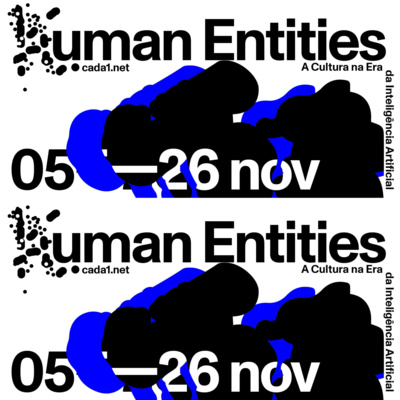
Human Entities 2020: Julia Steinberger
Green growth or Degrowth: climate action and human prosperity
Julia Steinberger
Professor of Ecological Economics, University of Lausanne
Lisbon, 26 November 2020
New research from ecological economics shows that we need to rapidly physically degrow our economies to avoid the worst effects of climate breakdown. Green growth might have been at best a dream, at worst a narrative designed to delay action. What does this mean for human well-being and political action?
Julia Steinberger Prof. Julia Steinberger researches and teaches in the interdisciplinary areas of Ecological Economics and Industrial Ecology at the University of Lausanne (previously University of Leeds). Her research examines the connections between resource use (energy and materials, greenhouse gas emissions) and societal performance (economic activity and human wellbeing). She is interested in quantifying the current and historical linkages between resource use and socioeconomic parameters, and identifying alternative development pathways to guide the necessary transition to a low carbon society. She is the recipient of a Leverhulme Research Leadership Award for her research project 'Living Well Within Limits' investigating how universal human well-being might be achieved within planetary boundaries. She is Lead Author for the Intergovernmental Panel on Climate Change’s (IPCC) 6th Assessment Report with Working Group 3.
https://environment.leeds.ac.uk/see/staff/1553/professor-julia-steinberger
https://profjuliasteinberger.wordpress.com
https://medium.com/@JKSteinberger
https://twitter.com/JKSteinberger
Organised by CADA
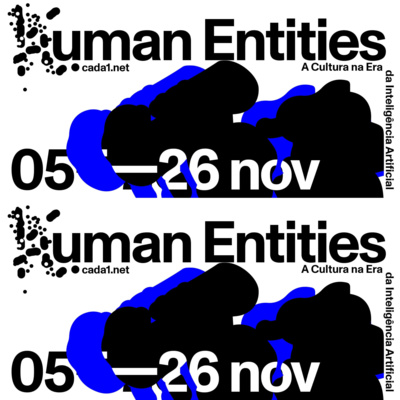
Human Entities 2020: Joe Paton
Joe Paton
Computational neuroscientist, director of the Champalimaud Neuroscience Programme, Lisbon
Lisbon, 19 November 2020
Brains and computers both perform computations, yet for the most part, their similarity ends there. Nervous systems have evolved over the last several hundred million years to support the survival of organisms in which they are situated. Man made computers exist due to theoretical and technical innovations of the 20th century, and are powerless without our explicit instruction. This talk will explore some of the features of nervous system structure and function, highlighting their differences and similarities when compared to computers and modern computer algorithms for machine learning and artificial intelligence.
Joe Paton
Joe Paton, Ph.D., is a computational neuroscientist and director of the Champalimaud Neuroscience Programme at the Champalimaud Foundation in Lisbon, PT and co-director of the FENS-Cajal Advanced Training Course in Computational Neuroscience. Originally trained as a biologist, he received his doctoral degree in Neurobiology and Behavior from Columbia University. His research laboratory focuses on understanding the algorithms and neural circuit mechanisms underlying intelligent, adaptive behavior.
http://neuro.fchampalimaud.org/en/person/115/
Organised by CADA
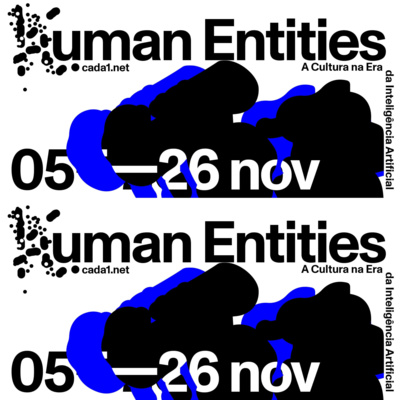
Human Entities 2020: Margarida Mendes
Margarida Mendes
Curator, researcher and activist
Lisbon, 12 November 2020
Can we actually trace the exact perimeter of a river’s molecular cartography and the extent of the consequences that these systems of catalytic flux have within and outside living bodies? River systems and their surrounding infrastructures are enormous hydrogeological, chemical and electromagnetic systems that connect their surrounding inhabitants and ecosystems through an irreverent flux of discharges and motions that humans attempt to tame through flowage rights and coastal restoration projects. Hence, aquatic and riverine infrastructures are essential points of departure for system analysis and reflection about the bodies and ecosystems, from the molecular through to the planetary scale. In attempting to understand the connection between river flux, noise, toxicity, and industrialization, I will focus on the habitats of the Mississippi and the Tagus rivers, questioning how the level of background noise and chemical imbalance may be connected with endocrinological disruptions. By investigating the chemical and vibrational continuity between bodies and the environment, I will speculate how different ontologies and mechanisms for sensing and registry might be needed, in order to provide a deeper debate about ecosystems under distress.
Margarida Mendes
Margarida Mendes's research explores the overlap between cybernetics, ecology and experimental film, investigating environmental transformations and their impact on societal structures and cultural production. She is interested in exploring alternative modes of education and political resilience through her collaborative practice, programming, and activism. She was part of the curatorial team of the 11th Gwangju Biennale (2016), 4th Istanbul Design Biennial (2018), and 11th Liverpool Biennial (rescheduled for 2021). In 2019 she launched the exhibition series Plant Revolution! which questions the interspecies encounter while exploring different narratives of technological mediation and in 2016 curated Matter Fictions, publishing a joint reader with Sternberg Press. She is a consultant for environmental NGOs working on marine policy and deep sea mining and has directed several educational platforms, such as escuelita, an informal school at Centro de Arte Dos de Mayo - CA2M, Madrid (2017); The Barber Shop project space in Lisbon dedicated to transdisciplinary research (2009-16); and the ecological inquiry curatorial research platform The World In Which We Occur/Matter in Flux, (2014-18). She is a PhD candidate at the Centre for Research Architecture, Visual Cultures Department, Goldsmiths, University of London with the project “Deep Sea Imaginings” and is a frequent collaborator on the online channel for exploratory video and documentary reporting Inhabitants-tv.org.
http://goldsmiths.academia.edu/MargaridaMendes
https://soundcloud.com/margaridamendes
http://www.twwwo.org
Organised by CADA
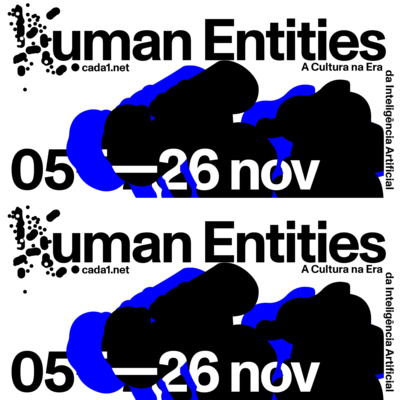
Human Entities 2020: Andrea Pavoni
Andrea Pavoni
Research fellow at DINÂMIA’CET, Instituto Universitário de Lisboa
Lisbon, 4 November 2020
The talk dives into the impalpable atmosphere of everyday urban life, through which we breathe, experience, and feel the city. In times of aesthetic capitalism, politics of fear, ubiquitous computing, and airborne diseases, this inconspicuous background has become the battleground of urban politics. Digital technologies, branded imaginaries and normative regulations increasingly weave into this hazy everyday, deeply affecting the corporeal, emotional and intellectual paths through which we navigate the city.
How to make sense of this ongoing reconfiguration of urban experience? Three dimensions may be highlighted: the imperative of adaptation at the core of neoliberal ideology; the politics of comfort informing the engineering of safe and pleasurable atmospheres in the city; and the systemic delegation of intellectual, emotional and ethical urban skills to techno-legal proxies, that feeds functional stupidity, social anxiety, and existential disorientation. After unpacking their composition and the political consequences thereof, the talk will conclude, tentatively, by gesturing towards ways to experience the urban otherwise.
Andrea Pavoni
Andrea Pavoni is a research fellow at DINÂMIA'CET, Instituto Universitário de Lisboa, Portugal. Unfolding at the intersection between critical geography, social theory, and philosophy, his research explores the relation between materiality, normativity and aesthetics in the urban context. He is editor of the Law and the Senses Series (University of Westminster Press) and associate editor of the journal Lo Squaderno, Explorations in Space and Society. His book, Controlling Urban Events. Law, Ethics and the Material, is out on Routledge.
https://www.dinamiacet.iscte-iul.pt/research-team/Andrea-Pavoni
Q&A session moderated by Simone Tulumello
Organised by CADA

Human Entities 2019: James Bridle
James Bridle
Artist and writer
Lisbon, 27 March 2019
We have spent the last hundred years attempting to master the world with calculation, with mathematics, physics, and digital technologies. We have come to believe that the world can be reduced to data – and only data matters. And yet the world still teems with life and our algorithms seem incapable of capturing its complexities; our supposedly logical worldview seems to lead us to fear, distrust, and polarisation, and the cognitive collapse is mirrored in an ecological one. How might a different understanding of the role technology plays in the world change our relationship with the world itself? Artist and writer James Bridle will explore the questions and possibilities of artificial and other intelligences through his own work, and new discoveries in ecology, biology, and computation.
James Bridle
James Bridle is an artist and writer working across technologies and disciplines. His artworks have been commissioned by galleries and institutions and exhibited worldwide and on the internet. His writing on literature, culture and networks has appeared in magazines and newspapers including Wired, Domus, Cabinet, the Atlantic, the New Statesman, the Guardian, the Observer and many others, in print and online. He lectures regularly at conferences, universities, and other events. “New Dark Age”, his book about technology, knowledge, and the end of the future, was published by Verso (UK & US) in 2018.
https://jamesbridle.com
Organised by CADA
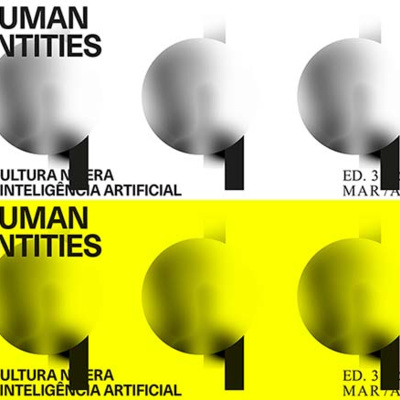
Human Entities 2019: Stephanie Hare
Stephanie Hare
Researcher and broadcaster
Lisbon, 17 April 2019
Our face, voice, DNA, fingerprints and other data about our bodies (also known as our biometrics) are increasingly being used by governments and companies to identify and monitor us, and to analyse, predict and control our behaviour. The risk to our privacy, our civil liberties and our democracies is so grave that even technology giants such as Google, Microsoft, Amazon are asking for regulation. What role – if any – do we want biometrics technologies to play in our society? How would they transform private and public life? Can regulation prevent the worst-case scenarios?
Stephanie Hare Stephanie Hare is a researcher focused on technology, politics and history. Selected for the Foreign Policy Interrupted fellowship and the BBC Expert Women programme, she shares insights on television and radio and has published in the Harvard Business Review, the Financial Times, Project Syndicate, the Herald, CNN and the Guardian. Previously she has worked as a principal director at Accenture Research, a strategist at Palantir, a senior analyst at Oxford Analytica, and a consultant at Accenture. She has held the Alistair Horne Visiting Fellowship at St Antony’s College, Oxford, has a PhD and MSc from the London School of Economics and a BA from the University of Illinois at Urbana-Champaign.
https://www.harebrain.co
Organised by CADA
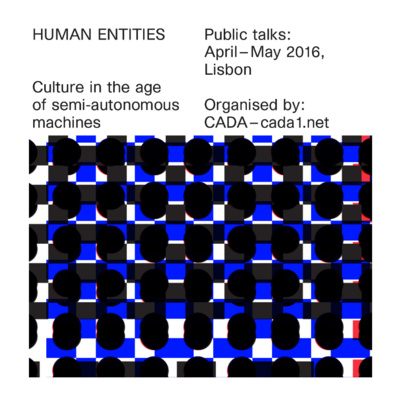
Human Entities 2016: Alice Benessia, Sara M. Watson
Alice Benessia
Do we really want and need to be smart? Can we?
The imaginaries of the Internet of Things and their inherent contradictions
Emergent information and communication technologies (ICT), such as the so-called Internet of Things (IoT), constantly redefine the texture of our culture, society and lifestyle, raising a number of fundamental epistemic, normative and ethical issues, in a constant co-evolution. These technologies are constructed, named, offered, and ultimately regulated, according to and through specific techno-scientific imaginaries, here defined as collections of visual and verbal metaphors that are created and communicated both in the specialized literature and in the mass media for the public at large.
Wonder, power, control and urgency can be defined as standard imaginaries of techno-scientific innovation: the fundamental axes defining an ideal space in which the multifaceted vision of the IoT can be projected and analyzed, in terms of what we want (wonder), we can (power and control) and we need (urgency) to be smart. Within this ideal space, we will examine together a variety media available on the web and produced by some of the key actors of the IoT revolution.
This exploration leads to an open-ended reflection on the underlying aims and contradictions of the ICT enhancement, in relation to the possible decline of some of the fundamental attributes of our integrity and agency.
Bio
Alice Benessia holds a PhD in Science Technology and Law, an M.A. in the Philosophical Foundations of Physics and an M.F.A in Photography and Related Media. She is a research fellow on Epistemology of Sustainability at the Interdisciplinary Research Institute on Sustainability (IRIS) based at the University of Torino. She has been appointed expert at the Joint Research Centre of the European Commission. She is a founding member of the Italian Association for Sustainability Science. She also works as a visual artist and has lectured on photography and visual arts in numerous national and international participatory workshops. Her interdisciplinary research deals with epistemological issues arising in the framework of art, science and sustainability with special interest in visual language.
Sara M. Watson
Liquid Data: The Power of Seductive Metaphors
By examining the dominant metaphors we use to talk about data, Sara M. Watson dissects the industry-centric bias at the core of our cultural understanding of data today. She argues more embodied data metaphors can better animate public consciousness and, in turn, shape policy positions, technology designs, and business models going forward. The power of metaphorical framings feeds into her recent work as a research fellow at the Tow Center for Digital Journalism, examining the rhetoric and ideology of technology on the public imagination. Sara argues that a constructive approach to technology criticism can improve the broader cultural discourse about technology, not only commenting on the technologies we have, but influencing and shaping the technologies we want.
Bio
Sara M. Watson is a technology critic and a Research Fellow at the Tow Center for Digital Journalism. She is also an affiliate with the Berkman Center for Internet and Society at Harvard University. Her work explores how we are learning to live with, understand, and interpret our personal data and the algorithms that shape our experiences. She investigates the ways that corporations, governments, and individuals use data from wearable sensors, the internet of things, and other digitally processed systems.
Audio recording Stress.fm

Human Entities 2016: !Mediengruppe Bitnik
Artists’ group !Mediengruppe Bitnik will present recent works exploring internet subculture, surveillance and bots. They will talk about their recently completed work Random Darknet Shopper which directly connected art spaces with the darknet via an automated online shopping bot. With a weekly budget of $100 in Bitcoins, the bot went shopping on the deep web where it randomly chose and purchased one item and had it mailed directly to the exhibition space, creating a landscape of traded goods from the darknet. Bitnik will also present Same Same – Watching Algorithms, a software bot which replaces all imagery on the website of the art space Cabaret Voltaire with algorithmically similar images.
!Mediengruppe Bitnik (read: not mediengruppe bitnik) live and work in Zurich/London. They are contemporary artists working on and with the internet. Their practice expands from the digital to affect physical spaces, often intentionally introducing a loss of control to challenge established structures and mechanisms. !Mediengruppe Bitnik’s works formulate fundamental questions concerning contemporary issues. In early 2013 !Mediengruppe Bitnik sent a parcel to WikiLeaks founder Julian Assange at the Ecuadorian embassy in London. The parcel contained a camera which broadcast live on the internet its journey through the postal system. They describe Delivery for Mr. Assange as a SYSTEM_TEST and a Live Mail Art Piece. The art group are also known for sending a bot called Random Darknet Shopper on a shopping spree on the darknets where it randomly bought objects like ecstasy and had them sent directly to the gallery space. !Mediengruppe Bitnik are the artists Carmen Weisskopf and Domagoj Smoljo. Their accomplices are the London filmmaker and researcher Adnan Hadzi and the reporter Daniel Ryser.
Their works have been shown internationally including: Shanghai Minsheng 21st Century Museum, City Art Gallery Ljubljana, Kunsthaus Zürich, NiMk Amsterdam, Space Gallery London, Cabaret Voltaire Zurich, Beton7 Athens, Museum Folkwang Essen, Contemporary Art Center Vilnius, Beijing Get It Louder Contemporary Art Biennial, La Gaîté Lyrique Paris, Gallery EDEN 343 São Paulo and the Roaming Biennale Tehran.
They have received awards including: Swiss Art Award, Migros New Media Jubilee Award, Honorary Mention Prix Ars Electronica.
https://wwwwwwwwwwwwwwwwwwwwww.bitnik.org
Audio recording Stress.fm